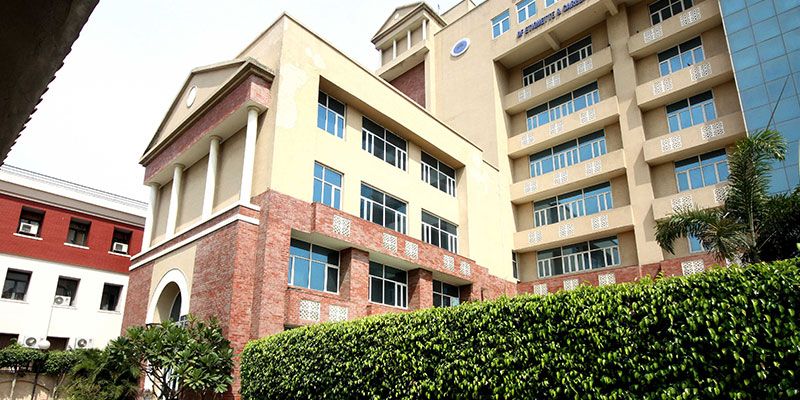Indian School of Development Management — the new abode of the social sector
The social sector views the world from a different lens — beyond the profit, investment, and finances. Offering an exclusive development studies programme, the Indian School of Development Management (ISDM), Noida, aims to integrate structure and professional leadership in development management.
With an aim to change leadership and management practices in the development sector, ISDM seeks to create a cadre of professional leaders and managers for the social sector. Deviating from the business management and MBA routine, the institution has set up a pioneering practice-based curriculum in the course of developmental studies.

Customised management course designed for the social sector
While there are thousands of NGOs working tirelessly in the development sector, the lack of professional management and leadership skills often hinders their growth. Ravi Sreedharan, the founding director of ISDM, says many social sector organisations have great vision and aims, yet they struggle to stay afloat due to “classic management failures.”
Business management applications cannot be replicated for the development management model as the guiding principles for both these sectors vary. Digantar, an organisation which aims to provide quality experiential ‘education for equality and justice’, is struggling to raise funds. Despite having an amazing school and pioneering teaching methods and curriculum setup, Ravi says this model school is yet to get recognition from the mainstream and they continue to face various challenges.
The social sector views the world from a different lens — beyond the profit, investment, and finances. It requires a non-linear approach to situations.
Elaborating further, Ravi says that a corporate company’s solution to open defecation was to build functional toilets, especially for women. However, the company noticed that despite the construction and availability of toilets, women continued to defecate outside. The CSR team was frustrated and the management team moved on to the next project stating that if the women didn't want to help themselves, there was nothing they could do about it.
“Now what they didn't realise was that these women were living in a society which was a very male-dominated, patriarchal society. The time they went to defecate outside was the only time they had freedom and could meet their friends, talk to them, and even lend/borrow money. Unless you realise these forces of society like gender, caste, or poverty, the business mind will assume very linear solutions,” says 55-year-old Ravi.

Post his interaction with over 700 individuals from various social sector organisations, he realised that the main vacuum in the development sector is due the non-availability of a structured course which discusses the various concepts unique to this field. At the core of business management studies lies the concept of standardisation and efficiency which cannot be applied universally when you work on sensitive topics like gender or education.
When one works in the education sector, they need to realise that it is not only about teachers, schools, and infrastructure but also about sanitation, hygiene, nutrition, women and children’s rights, hunger, and poverty. “One cannot even maintain a linear action plan because the work involves thinking, feeling, working with and for people with emotion and aspirations. To work in this sector you need the head, the heart, and the hand to be in synergy with each other,” Ravi says.
Development management is far more complex than a business administration setup. Hence, the ISDM team realised that there was a need to develop a management study module which encapsulated a new body of knowledge with respect to HR, marketing, organising structure, and financing specific to the demands of the social sector. Further, they plan to develop an interface which enables an individual to understand society and the public holistically — accounting for the cultural, social, economic, and political diversity across the country.
The onus is on the society to sustain the selfless social sector
While primary education was always his calling, Ravi believes that ISDM is his way to give back to the society after working for 25 long years in the financial sector. After leaving HSBC, he joined the Azim Premji Foundation to gain firsthand experience in the development sector as a full-time professional.
Ravi recalls the day he decided to set up this institution approximately fifteen months ago. He says, “I asked myself, ‘If you had everything and all the power and the resources, what would you do? You have earned money and given your family a good lifestyle. But that is all for yourself. What do you want to do for the country?’ And I came up with an institute that teaches development management.”

And hence, January 2016 onwards, the journey began. Within three months, a capital of Rs 20 crore was raised through philanthropy, financiers, and support from friends and family. As a result, the institute is offering 100 percent scholarship to all its students.
“I have this belief that if these students are going to do work for the society, the society needs to pay for these students to study,” he adds.
Practising a ‘problem-based learning’ method to counter challenges
The curriculum set up for the one-year postgraduate programme in development learning is unique and has been conceptualised after consulting with professors and practitioners across the world. Through classroom learning, inspirational talks, guest lectures, and the two-week immersive learning outdoor programme, the course aims to develop an individual cognitively, emotionally, and contextually.

The learning is not dictated by theory but formed on the basis of the individual experiences using the “problem-based learning” method. Elaborating further, Ravi says, “I am not telling you three ways to solve poverty but I will tell you what organisations have been doing in the space of poverty alleviation, and then, based on your field experience, you will figure out what the theory will be and what practices will work in that domain.”
There is a need to build an aspirational institute which will encourage young minds to gain inspiration to work towards the various issues that plague the society. Ravi believes that working in the social sector need not always imply poor job opportunities or a low-paying salary. Hence, the institute has partnered with the India’s pioneering NGOs, social entrepreneurs, and social sector organisations to provide campus placements towards the end of the academic year.











